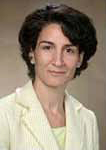Many women know that smoking is dangerous but few know that it is especially dangerous for women and children, that smoking related disease kills almost half the women in the US and reduces their life expectancy by 14.5 years. Both the scope of the problem and its economic costs are enormous.
Women are more susceptible to the harm of smoking and second-hand smoke than men. The fastest growing segment of the smoking population is young women. Smoking has a negative impact on 40 different physiological functions.
Meanwhile, the tobacco industry continues to aggressively market colorful candy-flavored nicotine products to young people. And funding for smoking cessation programs has been cut.
Fortunately, the recommendation by a provider to quit smoking increases the quit rate by 30%, especially when the right words are used, and counseling with medication is recommended.
More information: RI Tobacco Control Network
New tobacco screening measures will become mandatory in the next few years.
Government and community health policies aggressively seek to make tobacco use less normal, less available, more expensive and considered an environmental pollutant.
70& of smokers would like to quit. Only 15% are offered help.
Stats show providers are less likely to make a smoking diagnosis or order spirometry in women.
Women will quit smoking for the health of their unborn child. Then start again, not knowing that smoking contributes to post-natal morbidity.
A non-smoker who lives with a smoker has a 20% increased risk of disease.
Acupuncture reduces addiction in patients who are willing to quit, at the same rate of effectiveness as medicine and counseling.
Each of the following interventions doubles the likelihood of quitting:
A study of 4000 smokers in RI showed that 42% don’t consider quitting an option, and another 40% aren’t ready to quit.
Assess their motivational levels by asking:
When they’re ready to quit, prescribe cessation medication (patch, gum, lozenge, inhaler, nicotine spray, buproprion, varenicline) and refer them toQuitWorks–RI for cessation counseling.
The combination of counseling and medication have the highest quit rate, but only 6% of smokers take advantage of this combination.
To make the right thing to do the easiest thing to do in your practice:
Remember that lecturing, labeling and statistics reduce motivation to quit. One way to increase motivation is to “develop a discrepancy.” Change is more likely to occur when a behavior is seen to be conflicting with important goals or values.
Step 1: Discover what is most important to the person (a value, relationship, goal or hobby)
Step 2: Explore the reasons why the person smokes
Step 3: Develop discrepancy by asking:
A free workshop, focused on what you can do now, using available resources, to help your patients quit.
5:30-5:40 Welcome and Introductions
Event Moderator Karen Rosene-Montella, MD
5:40-6:10 How We Are Helping
Reimbursement, Regulations and Public Policy Patricia A. Nolan, MD, MPH; Jennifer Wood, JD
6:10-6:40 Assessing the Risks
Getting your patient’s attention Margaret Miller, MD; Athena Poppas, MD
6:40-7:10 Motivating Patients
Recognizing teachable moments Belinda Borrelli, PhD; Sara Ryan, DAc
7:10-7:40 Making It Work
Incorporating cessation practices Theresa Mrozak, RN; Amity Rubeor, DO
7:40-7:55 How You Can Help
Integrating what you already know?with what we’ve learned today Karen Rosene-Montella, MD
7:55-8:00 Closing Comments
Mary Reich Cooper, MD, JD
 Belinda Borrelli, PhD, is a Professor of Psychiatry and Director of the Program in Nicotine and Tobacco Research, Alpert Medical School of Brown University and The Miriam Hospital. She is a clinical psychologist specializing in motivational interviewing techniques for health behavior change. Dr. Borrelli has trained many hundreds of physicians, nurses, and lay providers in best practices for smoking cessation in the US and abroad.
Belinda Borrelli, PhD, is a Professor of Psychiatry and Director of the Program in Nicotine and Tobacco Research, Alpert Medical School of Brown University and The Miriam Hospital. She is a clinical psychologist specializing in motivational interviewing techniques for health behavior change. Dr. Borrelli has trained many hundreds of physicians, nurses, and lay providers in best practices for smoking cessation in the US and abroad.
 Mary Reich Cooper, MD, JD, is a Senior Vice President and the Chief Quality Officer of Lifespan, and is an Assistant Professor of Medicine at the Alpert Medical School of Brown University. In her current position, Dr. Cooper is responsible for articulating the quality and safety strategy for Lifespan and working closely with the state government and quality organizations in Rhode Island to improve safety and quality of care for the citizens of Rhode Island. She is Co-chair of the Women’s Health Council of RI.
Mary Reich Cooper, MD, JD, is a Senior Vice President and the Chief Quality Officer of Lifespan, and is an Assistant Professor of Medicine at the Alpert Medical School of Brown University. In her current position, Dr. Cooper is responsible for articulating the quality and safety strategy for Lifespan and working closely with the state government and quality organizations in Rhode Island to improve safety and quality of care for the citizens of Rhode Island. She is Co-chair of the Women’s Health Council of RI.
 Margaret (Peg) Miller, MD, is Director of the Women’s Medicine Collaborative, a Lifespan Partner; and Assistant Professor of Medicine at Alpert Medical School of Brown University. Dr. Miller is a board-certified internist whose primary area of interest is medical problems in pregnancy. Dr. Miller has also contributed to numerous peer-reviewed journal articles and book chapters on medical problems in pregnancy and speaks widely on topics related to the association between pregnancy-associated conditions and future chronic disease.
Margaret (Peg) Miller, MD, is Director of the Women’s Medicine Collaborative, a Lifespan Partner; and Assistant Professor of Medicine at Alpert Medical School of Brown University. Dr. Miller is a board-certified internist whose primary area of interest is medical problems in pregnancy. Dr. Miller has also contributed to numerous peer-reviewed journal articles and book chapters on medical problems in pregnancy and speaks widely on topics related to the association between pregnancy-associated conditions and future chronic disease.
 Patricia A. Nolan, MD, MPH, serves as the Executive Director of the Rhode Island Public Health Institute and is an Adjunct Associate Professor in the Department of Community Health at the Alpert Medical School at Brown University. The Public Health Institute is currently working to promote community health in Rhode Island through environmental assessments, health interviews, health information dissemination, and health promotion activities.
Patricia A. Nolan, MD, MPH, serves as the Executive Director of the Rhode Island Public Health Institute and is an Adjunct Associate Professor in the Department of Community Health at the Alpert Medical School at Brown University. The Public Health Institute is currently working to promote community health in Rhode Island through environmental assessments, health interviews, health information dissemination, and health promotion activities.
 Athena Poppas, MD is the director of the echocardiography laboratory at Rhode Island Hospital and a Member of the Clinical Care Working Group of the National Center of Excellence in Women’s Health at Women & Infants Hospital. Dr. Poppas is an Assistant Professor of Medicine at Alpert Medical School of Brown University. As a cardiologist, her research is focused on the various facets of heart disease in women.
Athena Poppas, MD is the director of the echocardiography laboratory at Rhode Island Hospital and a Member of the Clinical Care Working Group of the National Center of Excellence in Women’s Health at Women & Infants Hospital. Dr. Poppas is an Assistant Professor of Medicine at Alpert Medical School of Brown University. As a cardiologist, her research is focused on the various facets of heart disease in women.
 Karen Rosene-Montella, MD, is a Senior Vice President for Women’s Services and Clinical Integration and Vice Chair of Medicine for Quality and Outcomes for Lifespan. Dr. Rosene-Montella is the Division Chief of Obstetric Medicine and Professor of Medicine OB/GYN at Alpert Medical School of Brown University. She is Co-chair of the Women’s Health Council of RI.
Karen Rosene-Montella, MD, is a Senior Vice President for Women’s Services and Clinical Integration and Vice Chair of Medicine for Quality and Outcomes for Lifespan. Dr. Rosene-Montella is the Division Chief of Obstetric Medicine and Professor of Medicine OB/GYN at Alpert Medical School of Brown University. She is Co-chair of the Women’s Health Council of RI.
 Amity Rubeor, DO, is the Clinical Team B Leader at the Family Care Center in Pawtucket, RI, and supervises residents in the Brown Family Medicine Residency. Within the last year, her team has focused on Smoking Cessation quality improvement projects, working with Quality Partners of RI and Quitworks-RI. The Family Care Center has received Level 3 status through the NCQA and continues to work on other areas of chronic disease management through the Chronic Care Sustainability Index (CSI) of Rhode Island.
Amity Rubeor, DO, is the Clinical Team B Leader at the Family Care Center in Pawtucket, RI, and supervises residents in the Brown Family Medicine Residency. Within the last year, her team has focused on Smoking Cessation quality improvement projects, working with Quality Partners of RI and Quitworks-RI. The Family Care Center has received Level 3 status through the NCQA and continues to work on other areas of chronic disease management through the Chronic Care Sustainability Index (CSI) of Rhode Island.
 Sara Ryan, DAc, owns and operates a private Acupuncture and Traditional Chinese Medicine practice in Providence, RI. Her training includes a BA from Boston University and pre-medical studies at Providence College, a summa cum laude degree from the Emperor’s College of Traditional Oriental Medicine in Santa Monica, CA, and additional studies and practice in Tibetan Medicine in Dharamsala, India. Her acupuncture treatments often include the NADA protocol, which uses needles on auricular points to stimulate detoxification and relieve chemical dependency.
Sara Ryan, DAc, owns and operates a private Acupuncture and Traditional Chinese Medicine practice in Providence, RI. Her training includes a BA from Boston University and pre-medical studies at Providence College, a summa cum laude degree from the Emperor’s College of Traditional Oriental Medicine in Santa Monica, CA, and additional studies and practice in Tibetan Medicine in Dharamsala, India. Her acupuncture treatments often include the NADA protocol, which uses needles on auricular points to stimulate detoxification and relieve chemical dependency.
Theresa Mrozak, RN, CPHER, is a Prevention Team Program Coordinator with Quality Partners of Rhode Island. She is responsible for the development, coordination and implementation of initiatives associated with QuitWorks-RI as well as the initiative on Prevention and EHR implementation in the physician office setting. She is a Certified Professional in Electronic Health Records and holds a Business Management Certificate from Bryant University.
 Jennifer Wood, JD, is the Chief of Staff and General Counsel for RI’s Lieutenant Governor Elizabeth Roberts, where much of her work has been focused on healthcare reform. While in private practice she served for five years as Legal Counsel to the Rhode Island Senate Health Education and Welfare Committee where she worked on the development of Rhode Island’s ground breaking anti-smoking legislation.
Jennifer Wood, JD, is the Chief of Staff and General Counsel for RI’s Lieutenant Governor Elizabeth Roberts, where much of her work has been focused on healthcare reform. While in private practice she served for five years as Legal Counsel to the Rhode Island Senate Health Education and Welfare Committee where she worked on the development of Rhode Island’s ground breaking anti-smoking legislation.
Smoking Cessation 1: Margaret Miller, MD. Assessing the many risks associated with smoking. Women know that it’s dangerous but don’t understand its relevance to them.
Smoking Cessation 2: Athena Poppas, MD. Statistics about increased risk of smoking and second hand smoke for women. Women are more susceptible to the effects of tobacco.
Smoking Cessation 3: Belinda Borrelli, PhD. How to increase motivation to quit through motivational interviewing.
Smoking Cessation 4: Sara Ryan DAc. Acupuncture and the NADA Protocol have a 31% quit rate and 90% relief of recidivism.
Smoking Cessation 5: Theresa Mrozak, RN How to create a sustainable quit practice using Quit WorksRI.
Smoking Cessation 6: Amity Rubeor, DO. An action plan for initiating a smoking cessation program.
2011 Smoking Report Card: What RI is doing right, i.e., passing the 2009 Smokefree Workplace & Public Place Law vs. under spending on state tobacco control programs.
Smoking Cessation, Smoking Prevention: A series of 7 cards expand on the traditional Ask & Advise, Assess, Assist protocol (Assist: Positive Reinforcement, Assist: Pregnant Women Who Smoke, Assist: Second Hand Smoke). These cards include the kinds of tobacco use to look for, the stages of readiness to quit (Assist: Unwilling to Quit, Assist: Willing to Quit) how to move a patient towards quitting and how to help when they’re ready. Cards also address how to help pregnant women who smoke quit, and the risks of second hand smoke